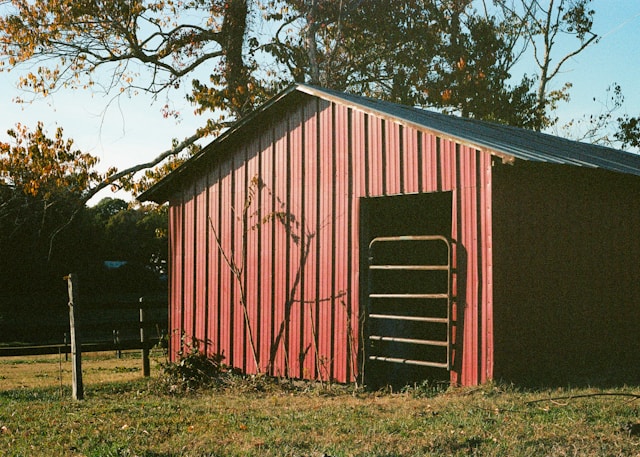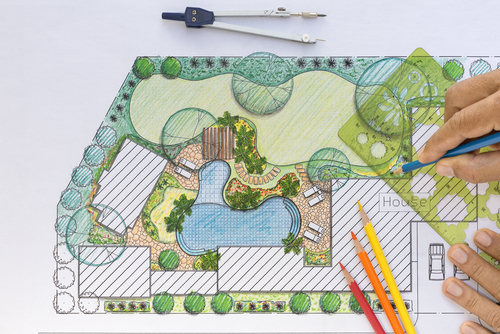What is a Shed?
Put simply, a shed is a simple single-storey roofed structure usually used for garden and agricultural storage, to shelter animals, as a playhouse, or as a workshop or creative studio. They are also extremely useful in the construction and retail industries. Sheds are versatile structures that serve a multitude of purposes in both residential and commercial settings. From storage places to workshops, sheds can enhance organisation and add value to your property. Most sheds are free-standing and modest in size, though larger, more durable structures are also common. Depending on their materials, dimensions, and intended purpose, sheds can range from simple, functional units to more elaborate, custom-designed spaces.

The Versatile Uses of Sheds in South Africa
In South Africa, with its diverse population, sheds serve as practical and multifunctional structures across residential, agricultural, and commercial sectors. Their value lies in their versatility, durability, and versatility to meet different needs. As urban spaces continue to shrink due to increasing population growth, both homeowners and businesses are increasingly turning to sheds as convenient, space-saving solutions.
Sheds are used for a wide range of activities, such as:
General Uses
- General Storage: Storage of seasonal items like holiday decorations, sports equipment, patio furniture, bicycles, children’s outdoor toys, and swimming pool essentials. Sheds can also be used for safely storing items not suitable for indoor storage, such as petrol, pesticides, or herbicides.
- Garden Sheds: Used for storing lawnmowers, spades, rakes, pots, fertiliser, and other gardening essentials.
- Potting Sheds: By adding windows or skylights to maximise natural light, a simple shed can be transformed into a bright, functional potting space ideal for gardening enthusiasts looking to grow and nurture plants year-round. Garden sheds may be purpose-built for those with a passion for plants, offering organised storage for tools, soil, pots, fertilisers, and other essentials. They also provide a sheltered environment for delicate plants and seedlings. Many gardeners utilise these sheds as practical potting stations, making it easy to manage their gardening tasks and prepare for planting from a single, convenient location.
- Tool Sheds: These sheds are designed to hold hardware, power tools, and workbenches for small DIY projects or home repairs.
- Utility Sheds: Used for housing generators, pool equipment, or water pumps.
- Hobby Room, Workshop or Creative Studios: For DIY enthusiasts, painters, potters, writers, musicians or hobbyists, a shed can be transformed into a personal workshop offering a dedicated space outfitted with electricity and furniture for woodworking, crafting, sound equipment, or even small-scale manufacturing. This separation from the main living area helps minimise distractions and encourages greater focus and creativity.
- Home Office or Business Space: With remote work on the rise, sheds are increasingly being converted into quiet, dedicated home offices. Properly insulated, powered, and connected to the internet, these shed offices offer a private and productive workspace only steps away from the main house. They are also ideal for small entrepreneurs such as mechanics or freelance professionals who need a mini workshop or secure inventory storage. For many startups, a shed-based workspace provides a practical and cost-effective alternative to renting commercial premises.
- Man Cave or She Shed: These personalised retreats provide the perfect escape for relaxation and solitude. Whether used for reading, watching TV, entertaining, or indulging in hobbies, a well-designed man cave or she shed, complete with cosy seating, ambient lighting, and stylish décor, offers a comfortable space to unwind away from the main house, especially if the main house is a busy family space.
- Home Gym: Transforming a shed into a home gym is a practical way to prioritise fitness without leaving your property. With the addition of workout equipment, mirrors, and cushioned flooring, you can create a fully functional, private fitness space personalised to your routine.
- Playhouses for Children: Sheds can easily be transformed into quaint playhouses for children. With a touch of creativity and a few simple modifications, a basic shed becomes an imaginative haven where kids can play, learn, and explore. It provides a safe and enjoyable environment for outdoor play, encouraging creativity and imagination whilst keeping children within sight and under the watchful care of their guardians. A big bonus is that the mess which accompanies play can be contained away from the main house.
- “Big Box” Site Use:
Large modular sheds, such as “Big Box” sheds, which are essentially shipping containers repurposed for various uses, are widely used in South Africa, such as:
-Schools: Big Box Containers are widely used in educational settings for classrooms, ablution blocks, medical stations, libraries, reading centres, and even as spaces for sports equipment storage or medical facilities. Some schools have established medical centres or first-aid rooms within repurposed containers. Containers can also be used to provide community services, such as food distribution points or learning centres.
-Construction Sites: On construction sites, these containers serve multiple purposes, including acting as display boards, storage units, site offices, lunch and tea rooms, change rooms, and first aid stations.
-Retail: Supermarkets and retailers use refrigerated (temperature-controlled) containers to supplement their existing cold storage capacity. These are particularly valuable during rolling power outages.
- Home Offices: Sheds are being creatively turned into home offices, offering a quiet workspace close to the main house. This setup helps maintain focus and productivity whilst reducing household distractions.
- Emergency or Temporary Shelters: In areas affected by natural disasters or during unexpected emergencies, sheds can serve as temporary shelters. While not intended as long-term housing solutions, they provide vital protection and secure storage for essentials, offering a practical, short-term response during crises.
- Community and Social Hubs: In some communities, sheds can be transformed into communal spaces. They serve as venues for workshops, local events, community meetings, and social gatherings, thereby fostering connection, collaboration, and a stronger sense of community. In this role, sheds go beyond function, becoming valued social assets.
Agricultural Use
- Housing for Livestock: In South Africa’s rural areas, steel sheds are commonly used to provide shelter and protection for livestock. Sheds can be converted into practical shelters such as catteries, dog kennels, chicken coops, goat housing, or stables, providing safe, comfortable, secure and weather-protected homes for pets and livestock.
- Crop Storage: Sheds help protect harvested crops from the elements and pests, preserving their quality and market value.
- Equipment Storage: Sheds are used to store farm machinery and equipment, ensuring they are adequately protected from both the weather and theft.
Sheds offer exceptional design flexibility, allowing them to be tailored to a variety of personal and lifestyle needs. Homeowners can convert sheds into outdoor entertainment areas, children’s playhouses, hobby rooms, or home offices. This adaptability not only enhances daily living but can also add value to the property by creating functional and appealing additional spaces.
Common Shed Materials
In South Africa, sheds are commonly made from steel, wood, or resin plastic, with steel being a popular choice for its durability and weather resistance, especially in the agricultural sector. Plastic resins are created by combining several polymers to give them the properties required for various uses.
- Steel and Metal Sheds
Preferred in agriculture, steel sheds are strong, durable, cost-effective, and low maintenance, making them a durable long-term investment. Prefabricated steel sheds are a popular and cost-effective solution for farmers, offering quick installation and long-term durability. Metal sheds are practical but may be subject to temperature extremes during harsh conditions. - Traditional Wooden Sheds
Classic and attractive, wooden sheds blend seamlessly into garden environments, offering a more cohesive structure. However, whilst they are a good option for a more natural and earthy look, they can be prone to warping, rotting, and pest damage if not properly treated and maintained. - Plastic Sheds
Lightweight, easy to clean, low maintenance, and resistant to rot or rust, plastic sheds are ideal for residential use and quick installation. They are a popular choice for outdoor storage due to their affordability and weather resistance. Many plastic sheds are made from durable resin-based plastic that is UV-treated and resistant to cracking, rotting, or peeling. - Prefabricated Sheds
Available in various sizes and designs, these offer a quick and straightforward solution.
Key Considerations When Choosing or Building a Shed
Before designing, purchasing or constructing a shed, it’s essential to think through the following factors to ensure it meets your needs and fits your space:
- Purpose: Define what the shed will be used for. Will it be for storage, a workshop, or a garden retreat? This will influence the shed’s size, layout, and choice of materials.
- Material: Consider the durability, weather resistance, and maintenance of different materials. Wood offers a classic look but may require regular upkeep, while metal and plastic are more durable and low-maintenance options, although metal is prone to rust.
- Location: Select a level, accessible area that won’t disrupt your property’s layout, landscaping, or drainage. Proximity to your home may also influence convenience and usability.
- Size and Space: Assess both the available space on your property and how much internal storage or working room you need. Check local building regulations for any size limits that may require permits.
- Security: If you’ll be storing valuable items, opt for features like lockable doors, sturdy frames, and secure windows to protect against theft or damage.
- Ventilation and Lighting: These are especially important if the shed will be used as a workspace or to house electrical equipment. Consider windows, vents, skylights, and door placement to ensure adequate airflow and natural light.
- Design: Choose a design that complements your property and aligns with the intended use of the shed.
- Budget: Shed costs can differ greatly depending on factors like size, material, and additional features. With a diverse array of designs and options available, you can find a shed that meets almost any need and budget. It’s crucial to establish a realistic budget from the beginning and consider potential extra costs, including installation, permits, and customisations.
Conclusion
In South Africa, sheds have become far more than simple – and sometimes unsightly – outbuildings. Their evolving multifunctionality has turned them into indispensable assets, acting as everything from individual storage and lifestyle needs to vital roles in agriculture and community support. As lifestyles change, so too do these structures, reflecting the creativity of South Africans. What once may have been a humble storage utility space is fast becoming an essential part of everyday life.
Modern sheds are now viewed as valuable additions to any property, offering more than just storage. With careful planning and quality construction, a shed can become a functional extension of your home as a workshop, hobby studio, home office, or even a relaxing retreat. They enhance not only your property’s functionality but also its visual appeal.

